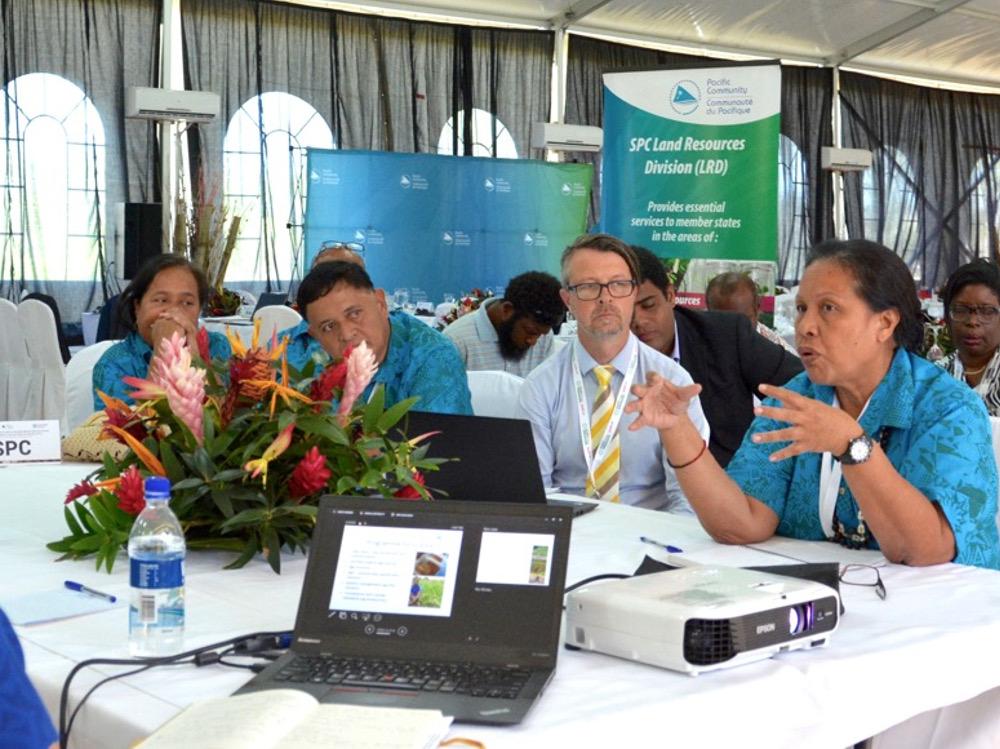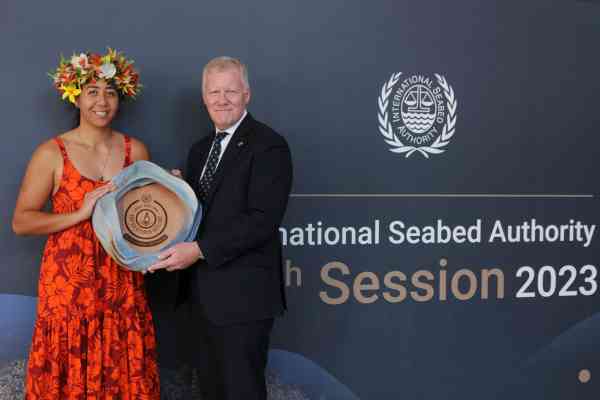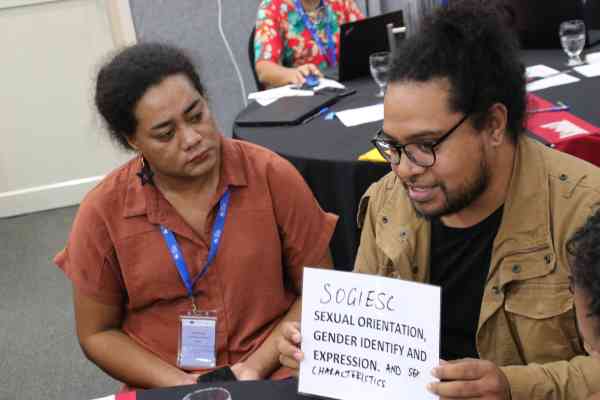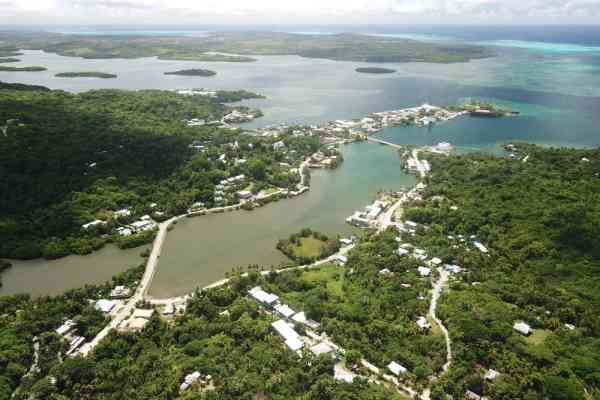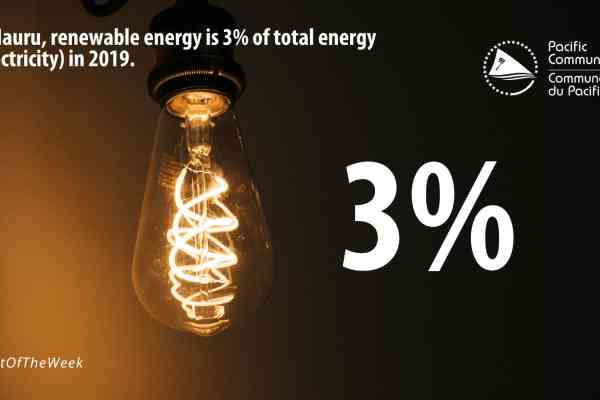The idea for a Pacific Week of Agriculture (PWA) was conceived in October 2014 when Vanuatu attended the 13th Caribbean Week of Agriculture in Suriname, South America. The South West Pacific (SWP) Ministers of Agriculture unanimously endorsed Vanuatu’s intent in Port Moresby in May of 2015. It eventually culminated in the successful inauguration of the first-ever PWA hosted by the Government of Vanuatu from 16-20 October 2017.
The theme of the resoundingly successful PWA* was Culture, Resilience, Opportunities, Products and Sustainability (CROPS). It comprised a number of formal and informal platforms for engagement between national and international stakeholders as well as private and public sector agents. PWA offered opportunities for donors and development partners to engage in side events and be part of week-long cutting edge discussions on themes including genetic resources; markets and value chains; and youth empowerment.
The PWA was launched officially on Wednesday18th, at the eve of the Heads of Agriculture and Forestry Systems (HoAFS) Meeting and concluded with a first-ever Pacific Community (SPC) and Food and Agriculture Organisation (FAO) joint Ministerial Meeting on the 20th.
The Land Resources Division of the SPC highly welcomed this opportunity partly as a means to re-engage with its Pacific country members (the last HoAFS dates back to 2012), and partly to work on strengthening existing as well as forging new partnerships. We also embraced the occasion to introduce our vision and mission and presented what we believed would be a possible LRD set-up positioned better to address the region’s current and future needs. 20 PICTs were represented in Vanuatu with close to 100 development partners and donors attending as observers.
Setting the scene for the HoAFS and Ministerial Meetings, one has to be cognizant of the fact that agrarian societies and cultures in the Pacific are no longer simplistic, and that many in the region now have a strong foot in the market – regionally as well as far afield. Reliance on local production for food has decreased at the community level, while with an aging farming population and changing climatic trends signs are also visible that farming may no longer be a livelihood of choice. The discussions during the HOAFS allowed us to appreciate better the prevailing issues and thus to provide the requisite impetus to better prioritize services. It also allowed for improved harmonization of development efforts to ensure more efficiency.
We believe that SPC as the principal technical and scientific agency in the region is uniquely positioned to capitalise on its science for purpose mandate and provide opportunities to enhance regional, national (and subsequently, community level) support to the agriculture and forestry sectors.
Investment in Agribusiness for example and promoting the role of youth in agriculture as well as keeping up with ICT and technological progress at the global level, provide a myriad of opportunities that will assist linking the Pacific’s Agriculture sector to the rest of the world. At a crucial time in aid and development, where efficiency and effectiveness are at the core of programme delivery SPC is leading in regional and national capacity building and supplementation of skills across 22 PICTs. This is the time to strengthen our understanding of national priorities, identify availability of resources, coordinate better regional collaboration and ensure that robust impact pathways are being developed.
So how would we proceed you may ask?
One of the first priorities is that we need to recognize the achievements of our member countries and that these can be used as platforms for further development. Our member countries are doing well in raising the profile of food security issues in the face of climate change. We look to Fiji who has set the example not only as the host of the 23rd Conference of the Parties (COP23). With their choice of High Level Climate Champion having Agriculture under his Ministerial portfolio, Fiji has immensely been raising the profile of the Pacific Agriculture sector during discussions and the recognition of the significant impact which climate change has on Agriculture and food security.
Next, we need to recognize that although development partners and financiers’ interest in the Agriculture sector is at an all-time high, regional support to national efforts remained largely fragmented. Not only is there an opportunity to build better linkages between our regional efforts and those at the national level (to maximise effective and efficient use of resources), but also is there an evident need to move out of the silos in which development partners have been operating to date.
Finally, we have to acknowledge that we have to be more responsive and in tune with our members’ priorities. Following this re-engagement with members, the way forward will include mapping and matching a development plan to resourcing opportunities; monitoring and evaluating technical issues at both regional and national levels; and evaluating the change results and progress of the region against these high level goals.
This first PWA proved that there is huge potential for partners to work together to achieve all of the above. A key partnership that is carefully being nurtured and which, once it comes to fruition, concerns FAO and SPC. The elevated profile of this important partnership has been justified as the lead Council of Regional Organisations in the Pacific (CROP) and UN agency operating respectively, in agriculture; forestry; fisheries and food security. In the context of this Umbrella partnership, opportunities are ample to coordinate better pest and disease management; build the quality management systems for a genetic resources pool that will safeguard and allow the use of food security crops within the face of climate change and promote the basic but essential principals of climate smart agriculture and land use management
Being an inaugural event, there are of course many lessons to be learned and to be shared. There are emerging partners in the sector, each with their own areas of technical expertise and sources of funding. In 2019, the same cohort will meet once again in Samoa for the second Pacific Week of Agriculture and the Heads of Agriculture and Forestry Services as well as the Ministerial meeting.
Ceteris Paribus, I want to reiterate that the PWA was a resounding success and will be the first step towards a richer and more fulfilling dialogue with our members and research and development partners – one that will institute a consistent mission over the next few years towards building a resilient and free of hunger Pacific Region.
* http://www.pacificweekofagriculture.com/wp-content/uploads/2017/09/booklet_proof2.pdf
